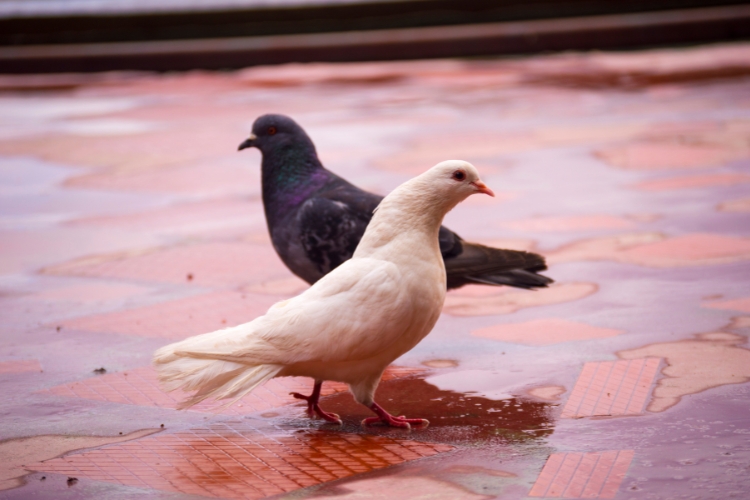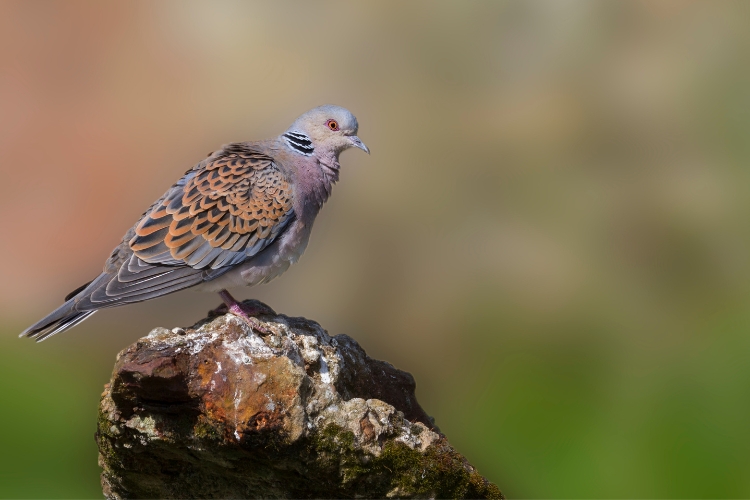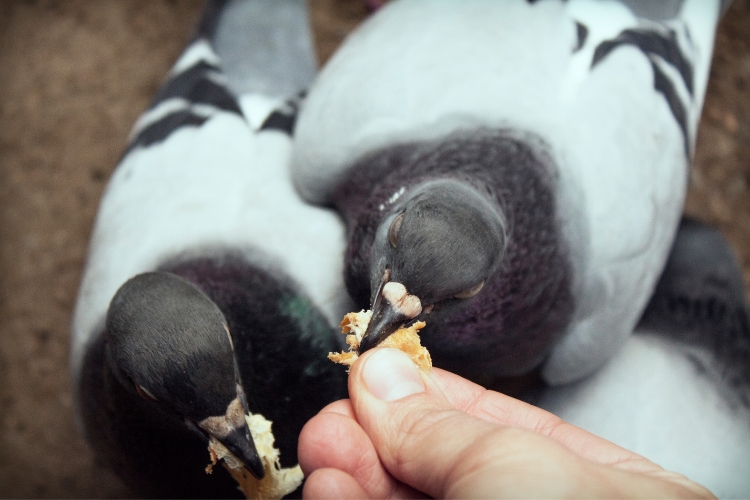Doves make wonderful pets, known for their peaceful nature and pleasant cooing. However, they can fall ill just like any other bird. As a responsible dove owner, it is important to learn what signs indicate your dove may be under the weather. That way, you can get them treatment promptly and help them feel better faster.
Recognizing Symptoms and Signs Your Dove is Sick
The sooner you identify symptoms, the quicker you can help your dove. Here are common signs that suggest your dove may not be well:
1. Changes in droppings
Your dove’s droppings offer important clues into their health. Look for changes in the urates, the white part of the stool. Normal urates should be white or off-white. Yellow, green, or blood-tinged urates often mean infection or illness. Watery droppings or lack of stool can also signal problems.
Diarrhea, foul odor, undigested food, or discoloration require veterinary attention. Make note if the volume of droppings increases or decreases. This can indicate issues like gastrointestinal infections.
2. Change in feathers
Ruffled, dirty-looking feathers may mean your dove doesn’t feel well enough to preen properly. Bald spots or feather loss can signal mites, fungal infections, or self-plucking due to stress. Fluffed up, puffy feathers can indicate pain, chill, respiratory issues, and more.
3. Difficulty breathing
Watch your dove’s chest movement when at rest. Rapid breathing, making noises when breathing, gaping mouth, or tail bobbing suggests respiratory issues, possibly illness-related. This warrants a vet visit.
4. Lethargy
Healthy doves are active and energetic. A dove that sleeps more than normal, moves sluggishly, stops singing/cooing, or exhibits loss of appetite may be under the weather. Isolate lethargic doves from flockmates and call your exotic pet veterinarian.
5. Loss of balance, head tilt, or tremors
Neurological symptoms like loss of balance, tilting head to one side, circling in place, or tremors can indicate serious issues like infection. Seek help from an experienced avian vet immediately.
6. Eye or nasal discharge
Clear fluid coming from the eyes or nostrils is normal for doves. However, yellow, green, bloody, or excessive discharge indicates infection or illness. This should not be ignored.
7. Evidence of injury
Broken blood feathers and limping suggest external or internal injuries, especially from trauma or hierarchical fighting in a dove flock. Provide first aid but seek vet care if the dove seems in distress.
Caring for a sick dove at home
If your dove displays illness signs but the symptoms appear mild, here is how to care for them at home temporarily:
1. Keep stressed doves in quiet isolation
Keep unwell doves in a comfortable, peaceful space away from other birds and activity that could raise stress levels. Offer food, water, roosting spots, and arrange follow-up vet care.
2. Offer hydration and nutrition
Provide ample fresh water to prevent dehydration. Offer their preferred seeds, greens, fruits, and other foods, even hand feeding if required. This maintains nutrition during illness. Consult an avian vet about nutritional supplements.
3. Administer medications cautiously
Ask your exotic vet before giving any over-the-counter medicines. Many human medications are toxic for birds. Only give prescribed drugs in the exact recommended amounts and duration.
4. Adjust ambient temperature
Sick doves may struggle to control body temperature. Offer a heating pad or lamp for warmth if the dove seems chilled. Or allow access to several parts of its habitat from warm to cool, so it can choose what’s comfortable.
5. Limit stressors during the recovery period
Avoid moving the cage frequently, sudden loud noises, children/pets poking fingers through bars, and other distress triggers while your dove recovers. Stress and fright can be dangerous.
6. Disinfect the habitat thoroughly
When a dove gets sick, dangerous bacteria and fungi contaminate their habitat. After recovery relocate birds to freshly laundered cage items and fully sanitized habitat. Then cleanOriginal habitat deeply before reusing.
7. Avoid dove pox and respiratory transmission
Dove pox and respiratory infections spread quickly between birds. Isolate any possibly contagious dove from other pet birds. Quarantine new doves 4+ weeks before introducing them to the current dove flock too. Better safe than sorry.
Getting avian-experienced veterinary help
Home care has limits. A dove displaying the following symptoms requires professional vet assistance quickly:
1. Difficulty breathing – panting, gaping mouth, noisy
Labored breathing signifies respiratory distress. This merits emergency veterinary care, especially if the cause is infection which could spread through a collection quickly.
2. Loss of balance, tremors, head tilting, seizures
Neurological issues progress rapidly in doves once symptoms appear. Only avian-savvy veterinary testing and treatment can help determine underlying cause and treat appropriately before permanent damage sets in.
3. Injury from fights or trauma
Broken bones and lacerations are extremely painful. Internal bleeding also possible. Only avian vet clinics have the knowledge and resources to effectively assess injuries, stop pain, and support recovery.
3. Egg binding or prolapse issues
Egg binding means a blockage is preventing the dove’s egg from passing normally. Prolapse refers to organs outside the dove’s vent. Both signal an urgent crisis requiring skilled emergency care to save the dove and preserve future egg laying capability.
4. Fuzzy, white oral or nasal growths
This suggests trichomoniasis, an infectious parasitic disease. Oral wart-like nodules may interfere with eating; nasal nodes could obstruct airways. Avian vets can perform testing, prescribe anti-parasitic medication, and help relieve symptoms.
When to euthanize a dove
Despite your best efforts, sometimes a dove becomes so ill or injured that humane euthanasia becomes the only option to prevent unstoppable suffering. Consider euthanasia if:
1. The dove stops eating/drinking over 24 hours
A dove that refuses food and water will starve painfully. Force-feeding is highly stressful and often ineffective long term. Euthanasia humanely ends their distress.
2. The illness cannot be diagnosed or treated
Ethical vets euthanize birds with symptoms that rapidly get worse without a definitive diagnosis. Allowing a dove to die naturally from a mysterious, worsening illness causes needless torment.
3. Treatment fails and dove’s suffering continues
If medications, supplements, and therapies don’t relieve a diagnosed illness, the humane choice may be euthanasia, rather than force a dove to keep fighting a losing battle.
4. Dove’s quality of life is gone forever
For catastrophic injury/illness leaving a dove unable to fly, chronically suffering, or with no hope of improvement, euthanasia compassionately ends frustration and pain. This difficult decision is part of responsible pet ownership.
As you can see, dove owners must remain alert to signs of illness and ready to take action. Paying attention to symptoms, isolating potentially contagious birds, and seeking prompt professional vet assistance when appropriate allows you to get your beloved dove back to health faster. Acting quickly and learning supportive home care gives treatment the best chance to work its magic.
Conclusion
Doves are sensitive, complex creatures which carefully conceal signs of sickness at first. By understanding symptoms, causes, emergency first aid steps, and when to seek veterinary care, responsible dove lovers can protect their flock’s wellbeing.
Stay alert to subtle signs of problems, respond promptly, and follow professional avian-experienced guidance. With quick, caring intervention, your beloved dove can make a full recovery and continue lighting up your life with its gentle companionship. learn here more about Dove care and growth.




